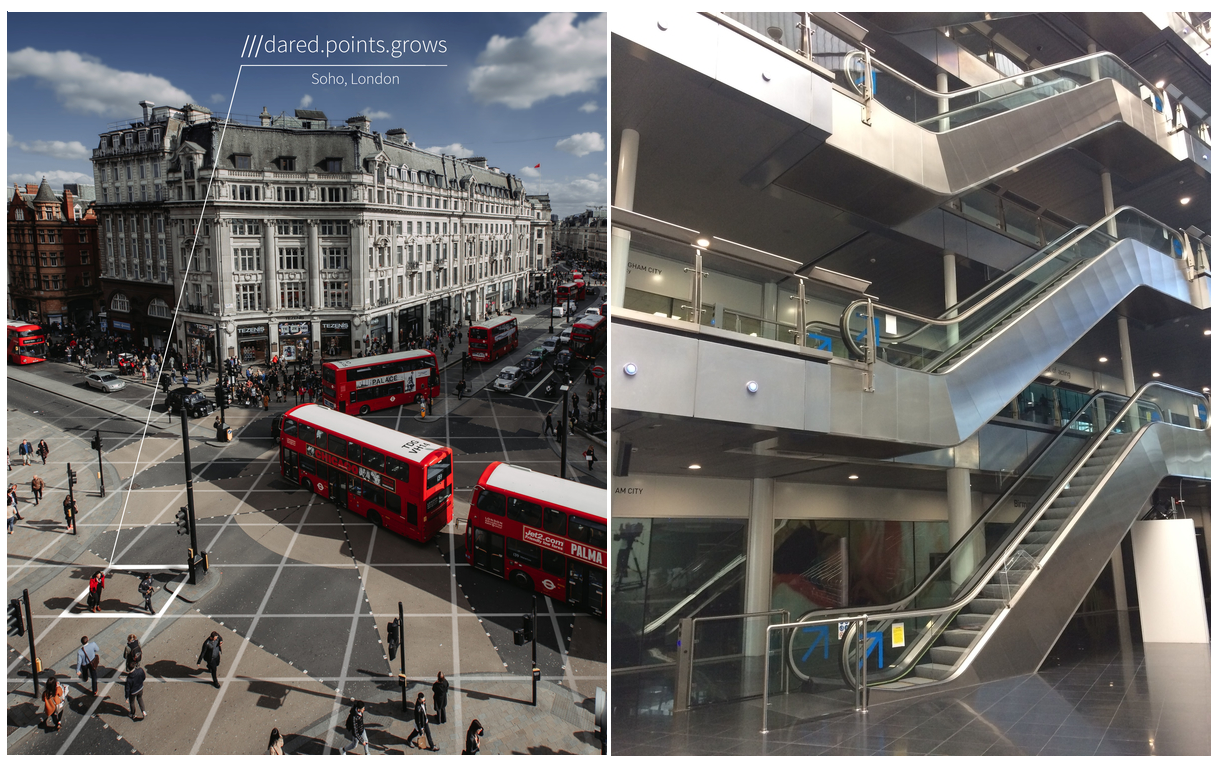The mission for February’s talk is to provoke the status quo and encourage new thinking to solve everyday navigation and wayfinding challenges.
what3words is a British tech company that has turned how we assign place addresses on its head. The company has developed a simple, human-friendly platform that allocates a three-word address to every 3m x 3m square in the world. Whether it’s helping people find tents at festivals; delivering post to places lacking a well developed address system; or directing emergency services to the right location, what3words can be used by anyone, anywhere in the world. Account Manager Charlie Wilson will take us through the inspiration behind the idea, explain how it works and outline what3words’ vision to become a global standard for communicating location.
By contrast, our second speaker Dr Colette Jeffrey, from Birmingham City University, will focus on ‘waylosing’. Colette will share the results of a five-year research project investigating why people get lost, and the influence of sign design, architecture and navigator cognition–theory. The research has culminated in the development of the ‘MAGPIE Matrix. This is a new framework that identifies six reasons for waylosing and maps them against the challenges faced by designers developing wayfinding systems for complex environments.
But remember, “not all those who wander are lost” (J. R. R. Tolkien in The Fellowship of the Rings, 1954)!
About our speakers
Charlie Wilson joined what3words two years ago, to look after key partnerships within the automotive and navigation industries. Sectors where the ability to easily communicate a precise location has great benefits for efficiency and customer experience. During his tenure, he has worked with event venues and organisations to improve wayfinding communication. With a geography degree from Durham University and previous experience in the events industry, the interaction of space and place have been a constant theme in Charlie’s work.
what3words was established in 2013 and now employs over 100 staff. It was founded by one-time music event organiser Chris Sheldrick who was frustrated at the navigational shortcomings of poor addressing around the world. His navigational nightmares inspired him to partner with former school friends Jack Waley-Cohen and Mohan Ganesalingam. In 2018 10% of the business was bought by Mercedes-Benz to support future versions of their user experience infotainment and navigation system. As of autumn 2019, 75 English and Welsh emergency services have signed up to the what3words system.
Dr Colette Jeffrey, Associate Professor of Wayfinding and Inclusive Design, has been teaching graphic communication at BCU since 2009, and at BIFCA in Wuhan (China) since 2015. She is a Director of the Sign Design Society, a Trustee for the Royal Institute of Navigation (RIN) and a member of RIN’s Cognition and Navigation special interest group.
Colette spent many years designing signs and wayfinding strategies for more than 20 NHS hospitals, The British Library, The National Library of Wales, Heathrow Airport, Natural History Museum, Wembley Arena, London South Bank University whilst working at Brand Union (now Superunion). During her time at Applied Wayfinding, Colette project managed the development of pedestrian wayfinding systems for cities including London (Legible London), Leeds (Walk Leeds) and Brighton. Current projects include working with Queen Mary University of London.
Birmingham City University’s history can be traced back to 1971 when local institutions, including the Birmingham College of Art and Birmingham College of Music, merged to form the city’s Polytechnic. In 1992 it became the University of Central England in Birmingham, changing its name to Birmingham City University in 2007. With over 24,000 students from 80 countries, BCU currently ranks 7th in the UK for graduate employability.
